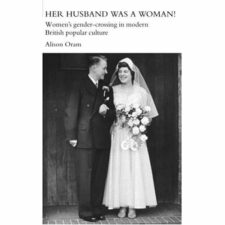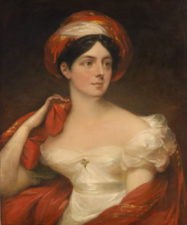I was always called ‘Young Val’. Surrounded by adults, I am not sure how I filled my days, but as a child I was never bored. We lived in the bush where there were trees, birds and insects and, as my mother always said, if Jimmy and I ran out of books to read we read the labels on the cans and bottles filling the food cupboard. It was a wonderful, healthy and happy life.
School was my big experience at seven-and-a-half years of age. My father worked as a ganger and powderman on construction railways in New South Wales. Mum ran a boardinghouse for navies, three meals a day. Brother Jimmy, nearly six years older than I, was sent off to school during the week, coming home for most weekends and holidays. Somehow, I expect from my parents and Jimmy, I learned to read and write. By the time I began at school I was able to keep up with the other seven- and eight-year-olds. This meant I was quickly moved into my own age group.
At 15 I left high school having gained my Intermediate Certificate. Depression years meant no teachers college: my great ambition to be a teacher was no more. Living in the country there were no jobs, so an advertisement in the local paper: ‘School dentist wants young girl to look after children, prepared to travel’, caught my attention. Magic word – travel. I joined the family, which travelled to Sydney for school holidays – and I was a glorified housemaid!
There were three children. The girl was the eldest, about eight. Then came a boy of four and the baby. My employer was a travelling school dentist with wife and family living in Ballina, a small country town. They wanted somebody to mind the children, but when I arrived I found I had to do all the housework, or most if it, as well as wake up the children, squeeze them orange juice, bath them, make breakfast for them, and all those other child tasks! The couple entertained fairly lavishly and the girl who preceded me wore a uniform and a little cap. I refused to, so that was that.
… Having looked over Sydney, I decided I would stay, first checking with family friends to see if I could live with them. Farmer & Co (now Grace Brothers/Myer) needed sales girls for a sale – so there I was, somewhere to live, a job and an okay from my parents.
I was kept on after the sale. Juniors did all the menial jobs – dusting, cleaning, carrying for senior sales assistants. A Scotswoman, Miss Ferguson, was our head. Miss Ferguson was in her thirties when she arrived in Australia. She was firm but fair: extremely strict, very hard-working, always in at work before anyone else, and she kept us on our toes. Years later, when she was quite old and we were visiting her, she told us she had been too hard on us. We said no, she had taught us so much. I recall her saying: ‘Always smile when you answer the phone’, ‘Do not judge people by their clothing’, and so on and on.
Miss Ferguson thought I needed fresh air. She said I must miss the country, so made sure that at least once a week I was sent off outside taking tram, bus or train. Often it was to collect stock, or better still to deliver a lamp or lampshades to a customer’s home. It was exciting to a kid from the bush to go into homes in the ‘upper-crust’ areas of Bellevue Hill or Point Piper.
In the lampshade department we sold lamps and shades and cushions and a few other odds and ends. There was a bedding department next-door and the chap who was buyer for the bedding department was buyer for our department, despite Miss Ferguson’s being the head and actually doing the buying.
Selling is probably difficult for shy people, but I had to do it, as without a job I couldn’t stay in Sydney. As a junior, I didn’t serve any customers for almost 12 months, because that was the seniors’ job. Juniors weren’t allowed to speak to a customer. We had to run the messages and tidy up … The seniors at Farmers were trained in what we’d now call customer relations. The juniors were trained too. When I first went there, even though it was only for three weeks, for a sale, I had to do two days training before I began in the department. I was paid to be taught where the items were in the store, how to write out dockets, how to speak to people. When ‘permanent’, for another two years we went out to class once a week and had homework. We did a little bit of psychology, a little bit of window-dressing, a little bit of everything that went on in the store. It was excellent training.
In those days no one was paid a lot. I was paid a whole 32 shillings and sixpence a week. The seniors at 23-years, not at 21, got about £3/0/0 a week. They also had what they called ‘spiffs’ – commission on certain articles they sold. That’s probably why they did all the sales.
Then came the Second World War. My brother and many male friends went away. I was envious, but suddenly came a call-up for women. The chance for me and so many other women to join the airforce and experience a different way of life came when Clare Stevenson, who was to become director of WAAAF (Women’s Australian Auxiliary Air Force), was called up to Government House by Lady Wakehurst, the governor’s wife. Clare Stevenson was working at Berlei’s when the message came that she was needed at Government House at four o’clock that afternoon. She said she couldn’t possibly get there; she had clients coming. Finally after a lot of insistence she said she would be there at a quarter to five. She arrived to find it had been decided in advance that she should lead the WAAAF. She said she couldn’t, that she wanted to keep on working at Berlei’s and that she wouldn’t do it. Some weeks later her appointment was published in the paper. At the same time she received a telegram saying she had to take up her appointment the following week …
I sent the papers home for my father to sign and my mother must have tossed them because he didn’t see them, so I got another set. I tried the people I was living with. The woman and I sat up half the night, finally talking her husband into signing my father’s name to the space provided. I was 20 then. You had to be 21. When my father came down he asked me how I got in without his signature. I told him and he thought that was so marvellous, it was very resourceful.
We were enlisted for service in Australia and its territories overseas, including New Guinea. So began a whole new existence, a whole new life for ‘the girl from the bush’.
Val Buswell (c) 1988
Extract from oral history ‘Eighty-Eight’s Fair Enough’ in Glorious Age – Growing Older Gloriously, Jocelynne A. Scutt (ed.), Artemis Publishing, Melbourne, Victoria, 1988.
Born in NSW, Australia on 4 January 1922, Val Buswell trained as a salesperson with Farmer & Co in Sydney, later going into business for herself as a travelling sales representative. She was active in many organisations and women’s groups, and in 1989 was appointed a member of the National Women’s Consultative Council (NWAC), the Australian women’s representative body appointed by the Prime Minister. Her work for women was recognised in the Order of Australia (OAM) in January 1993.

